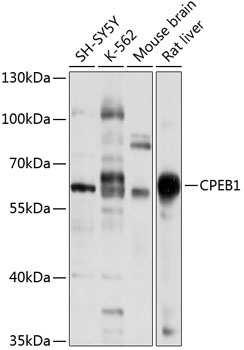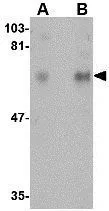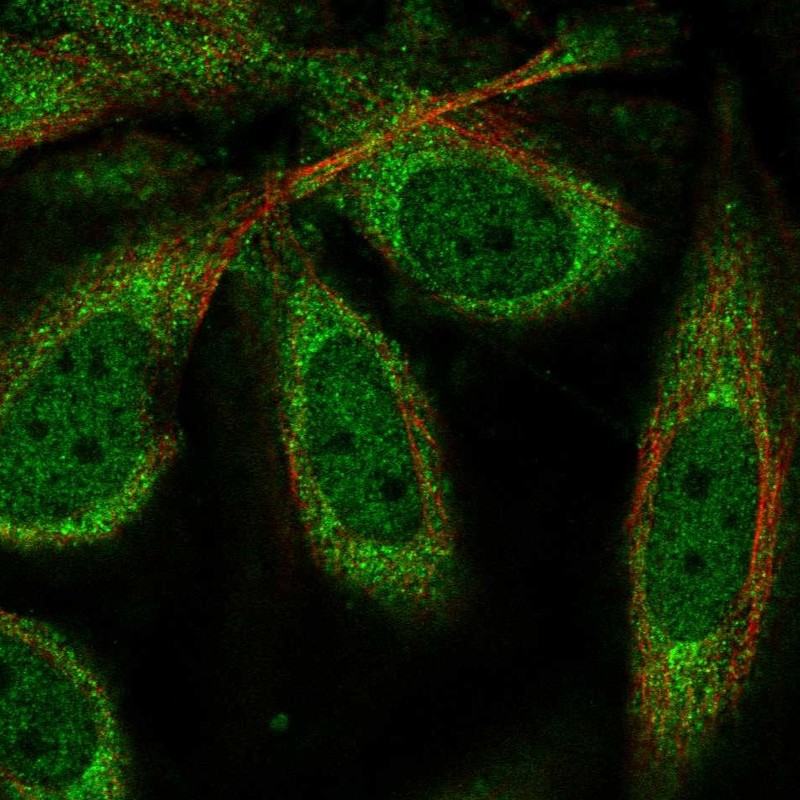
WB analysis of human brain lysate using GTX15917 CPEB1 antibody, C-term. Dilution : 0.5μg/ml Loading : 35μg protein in RIPA buffer
CPEB1 antibody, C-term
GTX15917
ApplicationsWestern Blot
Product group Antibodies
ReactivityHuman
TargetCPEB1
Overview
- SupplierGeneTex
- Product NameCPEB1 antibody, C-term
- Delivery Days Customer7
- Application Supplier NoteWB: 0.5-2microg/ml. *Optimal dilutions/concentrations should be determined by the researcher.Not tested in other applications.
- ApplicationsWestern Blot
- CertificationResearch Use Only
- ClonalityPolyclonal
- Concentration0.50 mg/ml
- ConjugateUnconjugated
- Gene ID64506
- Target nameCPEB1
- Target descriptioncytoplasmic polyadenylation element binding protein 1
- Target synonymsCPE-BP1, CPEB, CPEB-1, h-CPEB, hCPEB-1, cytoplasmic polyadenylation element-binding protein 1, CPE-binding protein 1
- HostGoat
- IsotypeIgG
- Protein IDQ9BZB8
- Protein NameCytoplasmic polyadenylation element-binding protein 1
- Scientific DescriptionThis gene encodes a member of the cytoplasmic polyadenylation element binding protein family. This highly conserved protein binds to a specific RNA sequence, called the cytoplasmic polyadenylation element, found in the 3 untranslated region of some mRNAs. The encoded protein functions in both the cytoplasm and the nucleus. It is involved in the regulation of mRNA translation, as well as processing of the 3 untranslated region, and may play a role in cell proliferation and tumorigenesis. Alternative splicing results in multiple transcript variants. [provided by RefSeq, Jan 2014]
- ReactivityHuman
- Storage Instruction-20°C or -80°C,2°C to 8°C
- UNSPSC12352203






